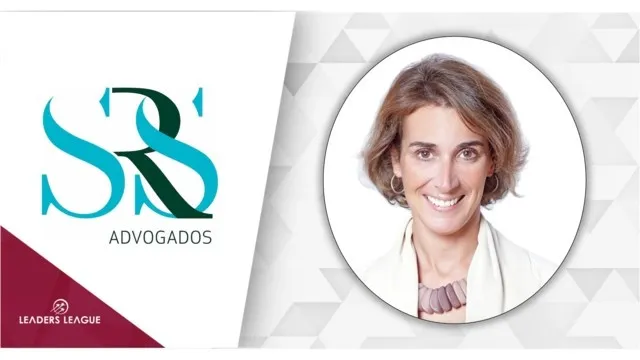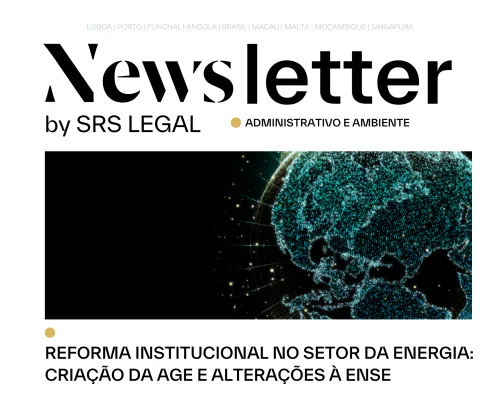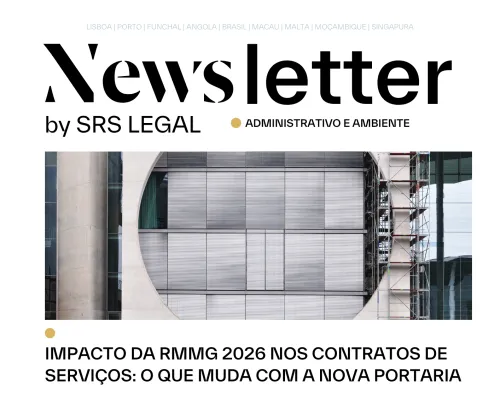Communication
Maria de Lancastre Valente: “Flexibility is not just a question of allowing an employee to work from home”
Maria de Lancastre Valente: “Flexibility is not just a question of allowing an employee to work from home”
The SRS Advogados partner walks us through changes to Portuguese employment law, how the firm maintained its client relationships, and what the workplace of the future might look like.
Leaders League: What changes have occurred in Portuguese employment law since the start of the crisis?Maria de Lancastre Valente: The Covid-19 crisis ushered in an extremely intense period in terms of legislative activity.
When compared, for instance, to the publication of the Labour Code in 2003 and its revision in 2013, this legislative activity occurred in a context of extreme uncertainty and volatility.
The main driver behind this was the creation of a legal and economic programme to help businesses and the workforce to remain afloat. The star of this program was the simplified lay-off regime, which was a simplified version of the suspension of employment or reduction of working hours regime already in existence in the Labour Code.
The other protagonist was (and remains) the overall approach to work itself. Many countries including Portugal experienced their first lockdown as a massive shut-down operation: schools, commerce, services all closed from one day to the next with the majority of the workforce working from home.
In Portugal, remote working was not a familiar concept for many companies or employees. Although the regime is in place since 2003, the idea of working from home carried with it an “unproductive” stigma and many companies simply overlooked or discouraged it.
The 2020 Covid crisis demonstrated that that remote work does not necessarily drive down productivity; on the contrary, studies show that in many cases employees are more productive when working from home. Home-working has generally been well received and is here to stay.
What are the key drivers for Portuguese businesses and the workforce in 2021?
In my opinion, flexible working conditions, economic resilience, Covid-19 vaccinations and mobility will be the key drivers in the Portuguese workforce’s return to strength.
Flexibility is not just a question of allowing an employee to work from home. It is a question of reinventing the employer-employee relationship. We are now pushing beyond the boundaries of the traditional definition of an employer who gives orders, supervises the employee at the workplace under a rigid work schedule and pays salaries based on the time he or she offers, instead of actual results or productivity. It is replacing the idea of subordination by collaboration. However, for this to happen, action must be taken at a legislative level. Multinationals were already investing in this flexibility-oriented approach at a national level and the Covid crisis served as an accelerator. Many companies are now moving at a faster pace than the law. There is a current project commissioned by the government to review the remote work regime where topics of work life balance, employee privacy, health and safety are to be addressed. It will be interesting to compare it with current expectations.
"Flexible working conditions, economic resilience, vaccinations and mobility will be the key drivers in the Portuguese workforce’s return to strength"
Also, our economic resilience will determine a lot of what we see in the coming years. This unprecedented situation has had a tremendous effect on Portugal: we are a country whose economy relies heavily on tourism and service-based jobs. In 2020 alone, Portugal recorded a drop of 7.8% in its GDP.
What I find interesting is that the principles society has been striving to work towards over the past few decades – improving working conditions (particularly salaries), rendering education equally accessible to all, advocating for equal conditions between men and women – are being subjected to very real “stress tests”. And the results of these stress tests suggest that society is less resilient or successful than it may have wanted to be in reaping the benefits of its efforts in an adverse context. This is relevant because it will, in my opinion, help explain the behaviour of our businesses in the post-Covid “rebound” years.
As 2021 progresses, I expect to see businesses take significant containment measures to cut costs; those that have been able to avoid downsizing will probably have no choice to do so in 2021. Those that already have may need further measures to become leaner and more cost-efficient. Unemployment levels are expected to rise significantly.
However, I believe there are sectors such as pharmaceuticals and technology that will continue to see growth and investment.
It is also expected that Portugal will follow the steps of other countries that are already debating vaccination and whether it will be mandatory for the workplace. Also, similarly to what has been happening for a number of years in the international business environment, employers in Portugal will be paying more attention to mental and emotional health.
How do you envision the future workplace in Portugal?
We are social creatures and psychology shows us that socialization is a key factor in mental health. My view is that the physical environment of the workplace will remain necessary in our future. The workplace and office environment offer a sense of belonging, identity and interaction.
Business strategy is currently designed around human capital and companies are making a huge effort to invest in their employees and encourage their engagement by offering them intangible assets or compensation like organisational values and culture. I believe these require face-to-face collective communication and collaboration to be successful and to keep employees happy, motivated and productive.
I don’t see a future where office space will disappear, especially at a time when companies are investing so heavily in employee well-being and corporate culture. It has become a part of their brand.
Office space may be designed differently, but it will continue to exist. Presence in the office will be less frequent to allow employees to maintain a healthy work-life balance, but it will remain as a place of business gathering and aggregation.
How did the restrictions of 2020 change your relationship or interaction with clients?
In my case, face-to-face meetings were not the norm even before the crisis. However, thanks to this situation and increased use of virtual communication, video meetings with clients became an opportunity to put names to faces for the first time, in some cases many years into our relationship. I also found myself communicating with clients more often than before, even with those where I have long standing relationships.
I think the relationship between lawyers and clients strengthened as they became partners in vulnerability and shared a larger portion of the risk their clients’ decisions.
Suddenly the relationship turned personal and vulnerable as the communication included seeing how we live, our home workspaces, being interrupted by our children during meetings, sharing personal difficulties – experiencing a greater bond because we are all in the same boat.
Work performance pressures increased as the situation brought us to circumstances that we had never experienced before. Legislation was being published daily, in a context of unprecedented volatility, and clients needed quick and efficient answers. This combination of factors intensified the level of pragmatism with which lawyers were already expected to respond. It meant pushing the boundaries of solutions, creativity and communication. It was partnership at a new level.
The overall experience has been very positive and there are certainly lessons I have taken away and that will remain at the top of my client action focus list for 2021 and the years to come.





